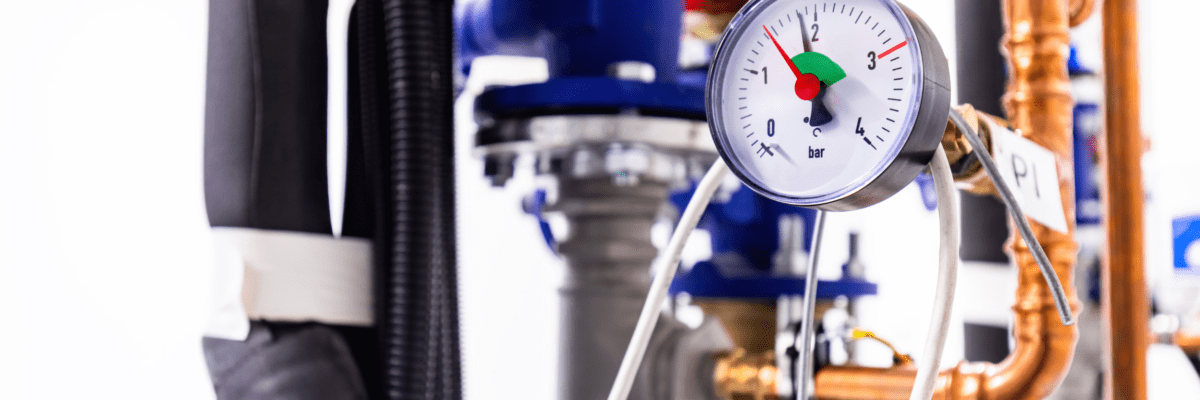If you live in the Northeastern US and you’re just getting started in the HVAC industry, you might not be familiar with heat pumps. They are commonly used in other parts of the country, but are less common as the main source of central heating and air conditioning here in New York. However, heat pump HVAC systems can be very useful as supplemental systems. And, due to improvements in the technology, they are gaining popularity as primary systems as well.
So, what exactly is a heat pump HVAC system? In this article, we’ll explain how heat pumps work differently than traditional split system air conditioners, and why more customers are choosing to install them, even in colder climates.
What is a heat pump HVAC system?
A heat pump is an energy efficient HVAC system that can provide not only air conditioning, but also heat.
Heat pumps have traditionally been used as a primary system only in milder climates, because in the past they were not capable of providing enough heat when temps drop below freezing outside. Here in the Northeast, heat pumps are more likely to be used as a supplemental system for an addition, for example.
However, that’s changing as heat pump technology has advanced and newer systems are now capable of providing more heat.
How heat pumps work differently than air conditioners
Heat pump HVAC systems use thermal energy to transfer heat from outside to inside, and vice versa. In a nutshell, that’s the difference between a heat pump and a traditional central air conditioning system: heat pumps can work in reverse to provide heat.
Like a split system air conditioner, a heat pump absorbs heat energy from the air inside, and releases it outside to cool the space. Unlike an air conditioner, a heat pump can also absorb heat energy from the air outside (or, in the case of geothermal systems, from the ground outside), and release it inside to heat the space.
But wait… that might sound counterintuitive. In cold weather, how can heat pumps capture heat outdoors? They can because even in cold temperatures, there is still residual thermal energy outdoors that can be used to produce heat.
Advantages and limitations of heat pump HVAC systems
Here are some of the advantages to using heat pump HVAC systems:
- Heat pumps tend to be more energy efficient than traditional split system air conditioners with a separate heat source (such as a gas furnace or electric heat). That means they cost less to operate.
- When a heat pump provides both AC and heat, there’s a single system to maintain, rather than two separate systems. That can translate to lower service and repair costs.
- Most heat pump HVAC systems don’t consume fossil fuels, unlike gas or oil burning appliances.
Heat pumps do have some limitations to be aware of:
- In colder climates, heat pumps can’t operate as efficiently as they do in milder climates.
- In very cold climates, it may be necessary to add a supplemental heat source (such as radiant floor heat) for the coldest days.
Types of heat pump systems & technology
Air source vs. ground source
As mentioned earlier, heat pump HVAC systems can be either air sourced or ground sourced (also known as geothermal systems).
Air sourced heat pumps, just like air sourced air conditioning systems, use thermal energy from the air to heat and cool. Ground sourced/geothermal systems have water pipes installed underground and use thermal energy from the earth.
While geothermal systems are considered the most efficient, they are most often chosen for new construction projects where it’s feasible to install the pipes underground.
Ducted vs. ducted
Just like air conditioning systems, heat pumps can either distribute conditioned air through ducts installed in walls and ceilings. Or, they can be ductless and have individual fan-coil units installed in each individual area within the space.
Ductless systems can be a practical choice for a supplemental system where it may not be feasible to install ducts. However, they do require “boxes” installed in visible locations, and also are less effective at removing humidity than ducted systems.
Another type of ducted system is a “package unit” heat pump, which is typically installed on a rooftop.
Variable speed compressors
Some types of heat pumps, including Variable Refrigerant Flow (VRF) systems, have compressors that work at a range of speeds. Many air conditioner compressors that have only two settings: on and off. Having a variable speed compressor means the system can adjust to the current conditions and run at a lower capacity for a longer time. This increases the energy efficiency, reduces noise, and is better able to control humidity.
Get more HVAC basics & information to get your career started
If you found this article informative, check out our training articles and videos for HVAC & Refrigeration technicians who are just getting started (or considering a career in the industry).
HVACR Career Connect NY was created to promote the exceptional quality-of-life benefits of a career in HVAC and Refrigeration service, and also to provide a clear path for getting started in the profession. In doing so, we serve as a resource for employers in the New York City metro area to find and hire smart and capable new technicians. We also serve as an educational resource to support business growth and to help service technicians succeed in their chosen profession.
